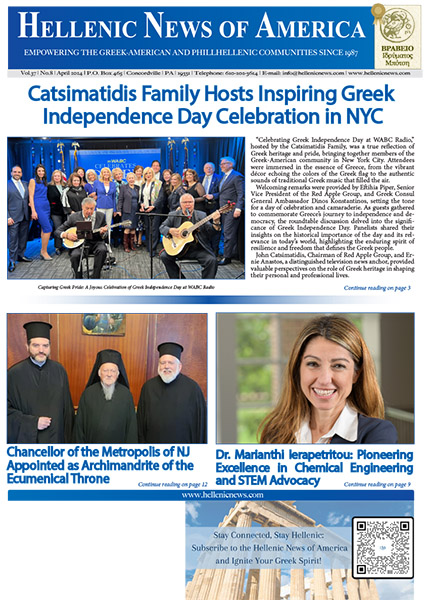By Professor Georgios Piperopoulos*
Members of the general public across the Globe as well as students enrolled in Business Administration, Management and Marketing programs may have come across, the former with various media articles and the latter with some marketing textbooks in which the author (s) refer to and consider PR as an activity of the broader field of marketing.
Although such a claim is not adopted by all marketing academics and practitioners it does create an unnecessary blurring of lines demarcating the domain and activities of the two related academic and practice fields. This brief note aims to familiarize the readers with the basic differences existing between the fields of public relations, marketing and advertising.
W.I. Thomas a century ago identified the ‘desire for recognition’ as an innate need of humans. Many readers may be familiar with Abraham Maslow’s human motivation theory and his globally acknowledged schematic presentation of a pyramid identifying and differentiating the ‘hierarchy of needs’. At the 4th level of needs, Maslow referring very specifically to esteem, makes a reference to the need for ‘recognition’ that characterizes humans in our daily relationships with others.
It is true that both marketing and public relations share the common underpinning of efforts aiming at establishing and maintaining ‘recognition’ of individuals, groups, enterprises or organizations as well as the products and services they offer to consumers.
The PRSA (Public Relations Society of America) definition of the field states clearly that ‘Public relations is a strategic communication process that builds mutually beneficial relationships between organizations and their publics.’ (http://prdefinition.prsa.org/)
Crossing over to the field of Marketing we will be able to read that according to the American Marketing Association (AMA) Board of Directors statement approved in October 2007: ‘Marketing is the activity, set of institutions, and processes for creating, communicating, delivering, and exchanging offerings that have value for customers, clients, partners, and society at large.’ (http://www.marketingpower.com/AboutAMA/Pages/DefinitionofMarketing.aspx)
Before the above definition of the general field, the following definition, concerning Marketing Research, was approved by the American Marketing Association Board of Directors as far back as October 2004: ‘Marketing research is the function that links the consumer, customer, and public to the marketer through information; information used to identify and define marketing opportunities and problems; generate, refine, and evaluate marketing actions; monitor marketing performance; and improve understanding of marketing as a process. Marketing research specifies the information required to address these issues, designs the method for collecting information, manages and implements the data collection process, analyses the results, and communicates the findings and their implications.’ (http://www.marketingpower.com/AboutAMA/Pages/DefinitionofMarketing.aspx)
One of the world-renown marketing gurus, Philip Kotler, defined marketing as: ‘The science and art of exploring, creating, and delivering value to satisfy the needs of a target market at a profit. Marketing identifies unfulfilled needs and desires. It defines measures and quantifies the size of the identified market and the profit potential. It pinpoints which segments the company is capable of serving best and it designs and promotes the appropriate products and services.’ (http://www.kotlermarketing.com/phil_questions.shtml)
Philip Kotler in his well-known ‘Marketing Management’ book, describes the most important concepts of marketing in the first chapter, as: segmentation, targeting, positioning, needs, wants, demand, offerings, brands, value and satisfaction, exchange, transactions, relationships and networks, marketing channels, supply chain, competition, the marketing environment, and marketing programs. These terms make up the working vocabulary of the marketing professional. For Kotler, Marketing’s key processes are: (1) opportunity identification, (2) new product development, (3) customer attraction, (4) customer retention and loyalty building, and (5) order fulfilment. A company that handles all of these processes well will normally enjoy success. But when a company fails at any one of these processes, it will not survive. (In: http://www.kotlermarketing.com/phil_questions.shtml)
Matters relating to marketing and public relations, however, may appear to be less blurred and entangled when one attempts to differentiate public relations from advertising. In this respect Alison Theaker in his ‘Public Relations Handbook’ has made a very clear point noting: ‘The distinction between advertising and PR is more easily made: advertising involves paying a medium (TV, radio, newspaper or magazine, for example) for air time or column inches in which to put across a promotional message. The content of an ad is always controlled by the advertiser, unlike the content of editorial pages or programmes, which are controlled by journalists. Public relations practitioners try to persuade journalists to cover their products and services on the grounds of newsworthiness. An ad doesn’t have to satisfy any news value – it just has to be legal and paid for.’
In the same frame of reference Shirley Harrison (Public Relations – An Introduction) has noted that the Institute of Practitioners in Advertising defines advertising as the activity which presents the most persuasive possible selling message to the right prospects for the product or service at the lowest possible cost. Harrison brings forth positive arguments for PR by emphasizing that the term ‘persuasive’ is not a public relations aim, ‘selling’ is not the purpose of public relations communications and, finally, the ‘cost’ element differs widely between public relations and advertising. From my own personal experiences and those of other practitioners and academic colleagues I can attest to the fact that PR budgets are relatively minute compared to advertising budgets.
Members of the public are aware that advertising messages are paid for and do not carry the same ‘weight’ as public relations messages, which may appear as news or editorial statement and are judged as bearing more impact in impressing the readers. Indeed the ‘cost’ factor is something the majority of public relations practitioners will enlist as an argument that does strengthen their claim of ‘success’ in having their messages published ‘free of charge’.
My colleagues at both sides of the Atlantic and the East often refer to me as a ‘pracademic’ since as both a practitioner in the field of public relations and as an academic I have used and presently continue using the same argument in differentiating advertising messages and broader marketing activities from public relations messages and activities.
There have been cases where the success of a public relations message in gaining media publicity and attracting the attention of the public has been labelled as ‘indirect’ advertising as it succeeded in carrying through the enterprise or organization message ‘free of charge’.
More on this, not as an advertisement or marketing gimmick but as a well-intended Public Relations gesture, in my e-book titled “Fundamentals of Communication, Public Relations and Leadership” which downloads for free using the link below: http://bookboon.com/en/fundamentals-of-communication-p-r-and-leadership-ebook
* Honorary Professor in Management and Marketing, Business School, Durham University, United Kingdom






